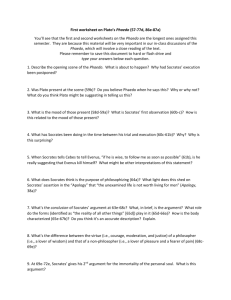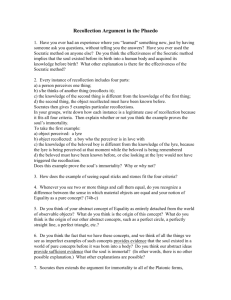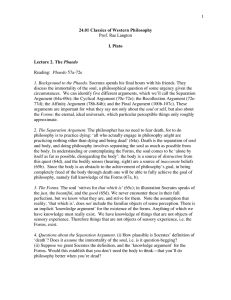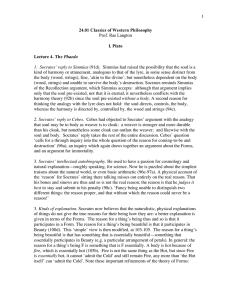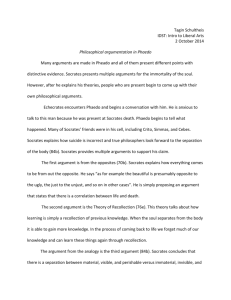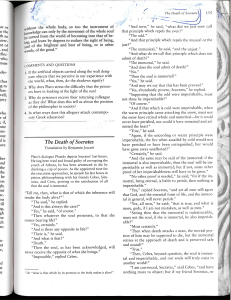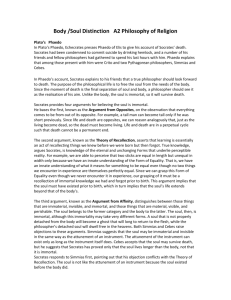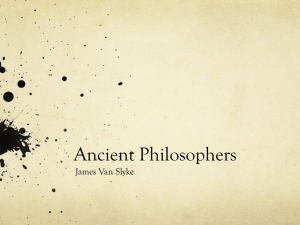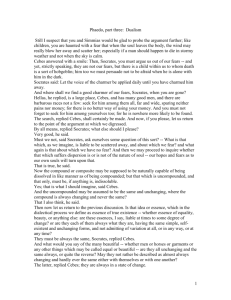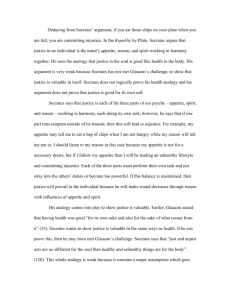Worksheet
advertisement
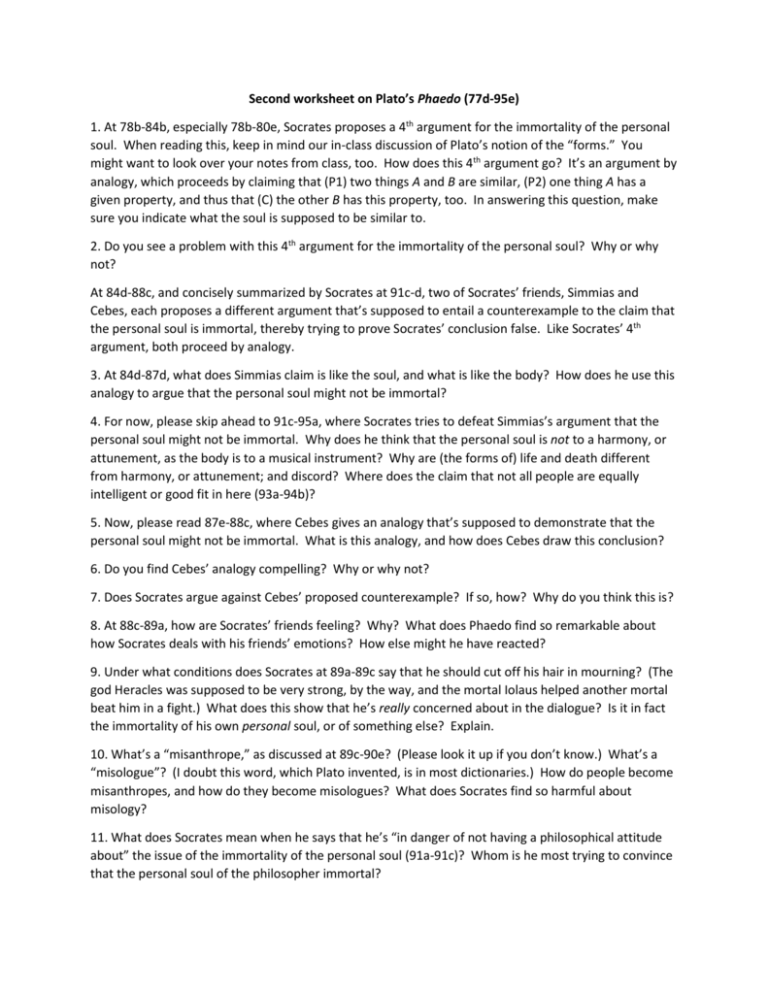
Second worksheet on Plato’s Phaedo (77d-95e) 1. At 78b-84b, especially 78b-80e, Socrates proposes a 4th argument for the immortality of the personal soul. When reading this, keep in mind our in-class discussion of Plato’s notion of the “forms.” You might want to look over your notes from class, too. How does this 4th argument go? It’s an argument by analogy, which proceeds by claiming that (P1) two things A and B are similar, (P2) one thing A has a given property, and thus that (C) the other B has this property, too. In answering this question, make sure you indicate what the soul is supposed to be similar to. 2. Do you see a problem with this 4th argument for the immortality of the personal soul? Why or why not? At 84d-88c, and concisely summarized by Socrates at 91c-d, two of Socrates’ friends, Simmias and Cebes, each proposes a different argument that’s supposed to entail a counterexample to the claim that the personal soul is immortal, thereby trying to prove Socrates’ conclusion false. Like Socrates’ 4th argument, both proceed by analogy. 3. At 84d-87d, what does Simmias claim is like the soul, and what is like the body? How does he use this analogy to argue that the personal soul might not be immortal? 4. For now, please skip ahead to 91c-95a, where Socrates tries to defeat Simmias’s argument that the personal soul might not be immortal. Why does he think that the personal soul is not to a harmony, or attunement, as the body is to a musical instrument? Why are (the forms of) life and death different from harmony, or attunement; and discord? Where does the claim that not all people are equally intelligent or good fit in here (93a-94b)? 5. Now, please read 87e-88c, where Cebes gives an analogy that’s supposed to demonstrate that the personal soul might not be immortal. What is this analogy, and how does Cebes draw this conclusion? 6. Do you find Cebes’ analogy compelling? Why or why not? 7. Does Socrates argue against Cebes’ proposed counterexample? If so, how? Why do you think this is? 8. At 88c-89a, how are Socrates’ friends feeling? Why? What does Phaedo find so remarkable about how Socrates deals with his friends’ emotions? How else might he have reacted? 9. Under what conditions does Socrates at 89a-89c say that he should cut off his hair in mourning? (The god Heracles was supposed to be very strong, by the way, and the mortal Iolaus helped another mortal beat him in a fight.) What does this show that he’s really concerned about in the dialogue? Is it in fact the immortality of his own personal soul, or of something else? Explain. 10. What’s a “misanthrope,” as discussed at 89c-90e? (Please look it up if you don’t know.) What’s a “misologue”? (I doubt this word, which Plato invented, is in most dictionaries.) How do people become misanthropes, and how do they become misologues? What does Socrates find so harmful about misology? 11. What does Socrates mean when he says that he’s “in danger of not having a philosophical attitude about” the issue of the immortality of the personal soul (91a-91c)? Whom is he most trying to convince that the personal soul of the philosopher immortal?
